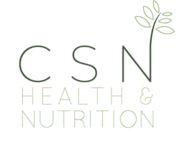It’s great when we wake up in the morning, full of good intention and willpower, but during the day, it’s not so easy to stick to the plan, so, preparation is key:
Be prepared
- Beat temptation to it: If you know that finding food which meets your healthy eating goals is going to be hard, take it with you. Likely as not, it will be cheaper, better quality and more in line with what you like, rather than what’s on offer on the high street or in the canteen.
- Too much of a rush to make lunch before you leave the house? Prepare it the night before, that way you can give your meal the attention it deserves.
- Think about the moments in the day when your resolve is tested. For me, it’s 11am and 5pm – I have an energy dip (maybe because I haven’t drunk enough water!). So, think about what you might like to have to get you over that bump, and have it ready to grab, for instance fruit, or yoghurt (plain – not sweetened)
Snacking
- Do you have an urge to eat – regardless of what it is? It might be that having veggies cut up with a portion of hummus will get you through the slump, without resorting to unhealthy snacks.
- Are you starving when you get home? Have something ready that you can grab; maybe a portion of soup or a delicious bowl of (natural) yoghurt and berries. Again, make sure you’re hydrated during the day to avoid those slumps when you think only a sugary snack will do.
- Carry an emergency, healthy snack with you when you go out; nuts will be satisfying and won’t cause your blood sugar to spike. Yes – nuts are rich in fats, but the good kind – monosaturated fat – and they’re also rich in vitamins and minerals. My “go-to” are almonds, pistachios and walnuts. Measure out a small portion – about the size of a small cupped palm.
- Do you want something sweet, but want to avoid sugar? Often adding spices like cinnamon or ginger, or using a drop or two of vanilla essence will give yoghurt a gentle sweet taste without adding sugar, or calories.
- If you’re wandering round the house looking for a snack, ask yourself, are you really hungry, or bored, or stressed, or thirsty. Rather than grabbing a biscuit, or packet of crisps, make a hot drink or, better still, if you can, go for a walk; that might reduce the stress, or the boredom and reduce the risk of impulsively eating food you’re trying to avoid.
Hydration
- It’s worth remembering the importance of drinking water throughout the day to reduce fatigue, increase concentrationand resist temptation; our bodies are comprised of up to 65% water and, we lose a lot during the day without realising it, so it’s important to keep hydrated.
Portion control
- Portion control is key to weight management; using a smaller plate may help reduce portion size, but as a general rule of thumb at each meal:
- Carbs: portion the size of your closed fist. Try to stick to high fibre options, such as wholegrain bread or pasta.
- Protein: portions the size of the palm of your hand. Try to eat at least 2 portions of fish a week and, remember, beans and pulses are also good protein sources, as well as great sources of fibre too.
- Dairy: 3 portions a day: for instance, cheese (width of 2 fingers), butter/fats, the size of your thumb
- Fruit and vegetables 5 a day (portions the size of your open palm)
- Include the equivalent of a fist of vegetables with each meal (2 for men)
- High-fat, high-sugar snacks – occasionally only portion size thumb nail to first knuckle
- Wherever possible, sit downto eat your meal and eat with minimal distraction; your and your stomach are intrinsically connected, and if you listen to each of them, they’ll tell you when you’ve had enough.
- CHEW!!!There are many benefits to chewing your food, slowly; you absorb more of the nutrients they contain, the food is more easily digested and, your become more satisfied, quicker as your brain and stomach are more in sync.
- If you finish you’re meal, but you aren’t quite full, it could be that the message that you’ve had enough hasn’t reached your head from your stomach. My tactic is to leave the table anyway, clear my plate and cutlery up and leave the kitchen, as it’s likely that giving it 10 minutes the feeling of fullness will kick in.
Foods to avoid
Often, we’re not even aware of the sugar or fat we consume . If you want to avoid eating hidden sugars and fats, look at the nutritional information on packaged foods; if it boasts low fat, it might have a high sugar content – I always liken this to meringues – low in fat but oh, the sugar!
Final tip avoid ultra processed foods. You’ll recognise them because of the looooong list of ingredients, often a lot of chemicals with unpronounceable names. Big culprits include (but are not limited to): pre-prepared meals, savoury snacks, reconstituted meat products, sauces and ice creams. These products are HIGHLY associated with weight gain.
Much of the above is not rocket science, nor necessary to have studied nutrition for many years to understand, but, I hope, this may serve as a set of useful tips and reminders.

